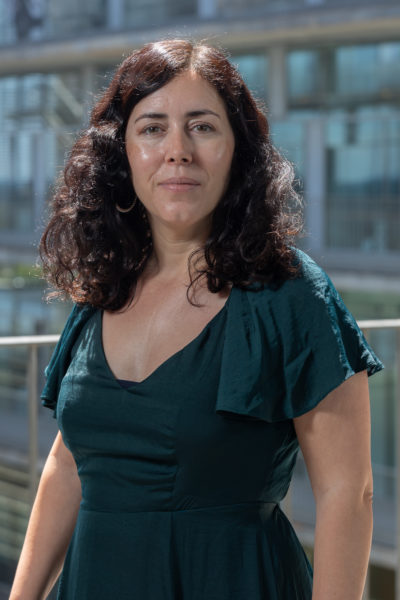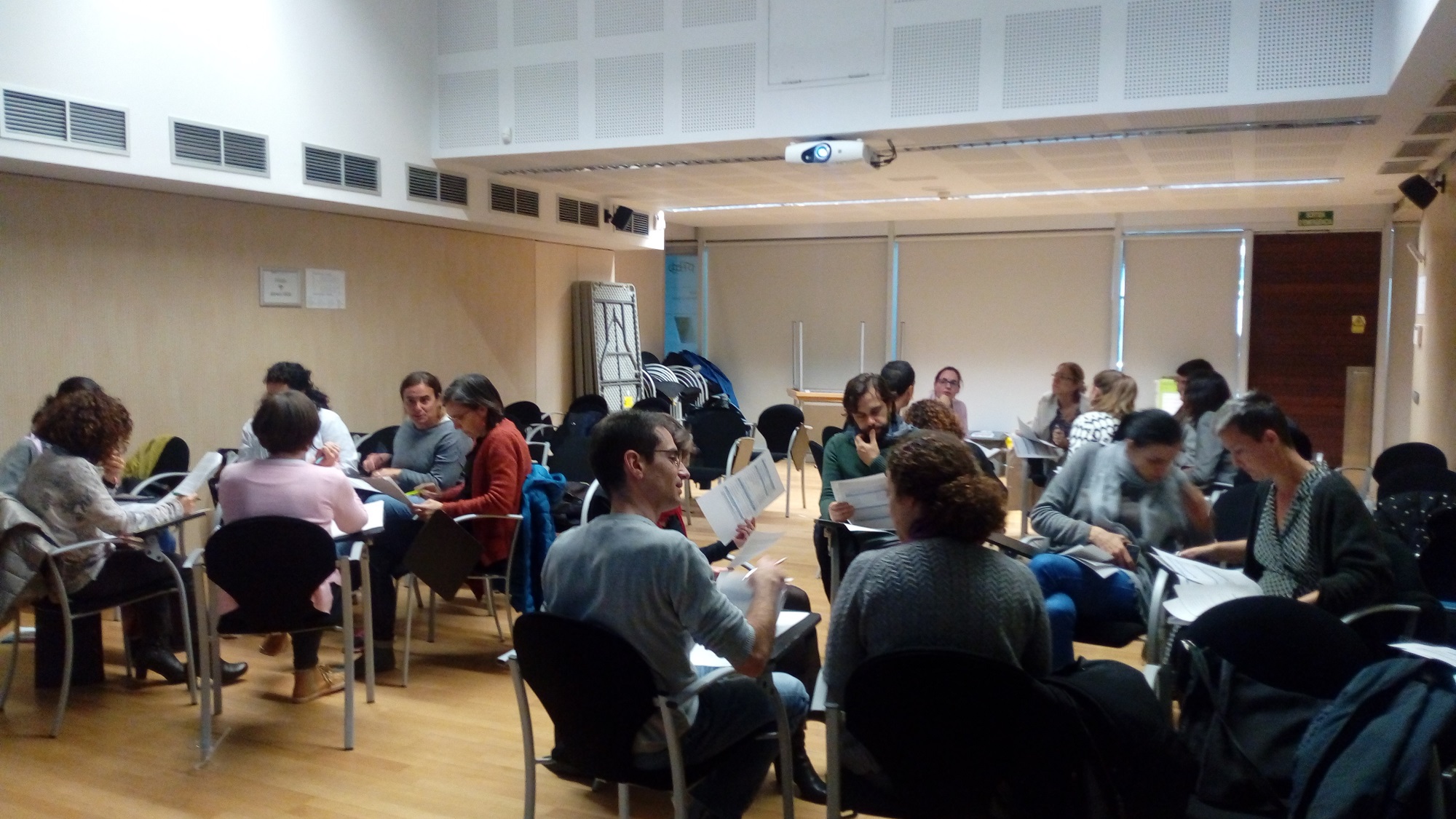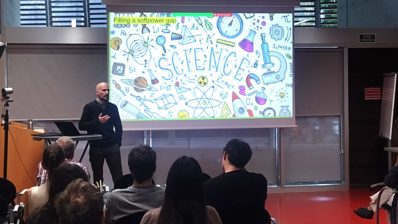At the Barcelona Biomedical Research Park (PRBB), research managers are a vibrant community of professionals dedicated and committed to providing an environment conducive to excellent research. They are an essential part of the management staff of the park, which counts all together for 17% of the total residents, according to the latest demographic figures from the 2021 PRBB Report.
The PRBB offers an ideal environment for the research managers to connect informally, collaborate and grow professionally. In past years, they promoted different initiatives to foster the exchange of best practices, grow their skills and overcome common challenges in areas as diverse as ethics compliance, scientific cooperation, funding of research. More recently, a new peer mentoring group was launched with the support of the PRBB Intervals programme, to enhance professional development of research managers and support for each other.
In June we conducted a survey to the research managers across the six research centres of the PRBB to get to know their profession better. The data were collected from a pool of 64 respondents who shed light and provide valuable insights into their diverse roles and backgrounds.
The responses reveal the multifaceted nature of research management as a profession. In general, responsibilities encompass more than one area, with those most closely related to their roles being:
- project management (38%)
- financial and administrative management of projects/grants (38%)
- scouting and development of external funding (25%)
Other valuable areas include, to a lesser extent:
- grant/project writing
- knowledge and technology transfer
- project contractual obligations
- ethics and research integrity
- science policy
Notably, a significant portion oversees several research projects/grants (55%), performs a range of tasks across a functional area (39%) or holds institutional transversal roles (27%), as opposed to managing one project only or the projects of a single research group/department. These preliminary findings highlight an ability to support and coordinate research activities at different levels.
Collected data provide further insights into the experience levels of the research managers at PRBB: almost half of the respondents have been working in this field for an extended period, with over 10 years of experience; nearly one-fifth, for less than 2 years. The combination of experienced research managers in the field, bringing valuable expertise and knowledge, and those at the beginning of their careers, bringing a fresh perspective, fosters a dynamic and collaborative environment, promoting continuous growth within the organization.
Many research managers are directly connected to the leadership of their institution.
The responses also highlight a direct connection between research managers and research leadership, management and operations. Research managers contribute to establishing vision and goals, building and implementing research plans and managing the execution of the correspondent activities.
The survey data reveal a diverse demographic profile and highlights the multidimensional roles of the research managers at the PRBB: their age range spans from under 25 to over 55, with the majority standing between 36 and 55 (73%). Although the majority originate from Spain (64%), a significant portion (36%) comes almost equally from other EU countries and countries outside the EU. It is also worth noting that three-fourths of the respondents hold a master’s degree or a doctoral degree, from a variety of fields, predominantly from life sciences (47%), followed by social sciences (33%).
Why to choose a career in research management
When asked about their reasons for choosing a career in research management, respondents provided a diverse range of motivations and interests in this profession. Approximately 30-35% of them saw research management as a way to stay connected to science; they enjoyed supporting researchers, having contact with stakeholders and international teams and facilitating collective intelligence. Enjoying team interaction, positive work culture and working in a dynamic and inclusive environment were mentioned as key factors.
Around 25-30% of respondents mentioned that their skills, such as planning, managing and communication abilities, aligned well with research management roles; they valued the opportunity to learn new skills, stay updated in the field of research, and work in an environment that fosters constant learning.
Roughly 10-15% of respondents expressed a desire to leverage their scientific background without pursuing a traditional academic career as a researcher. While a few chose research management due to a specific job specialization to move away from the bench, to seek more stable income and a better work-life balance, others expressed a desire to make a social impact through research management, particularly in areas such as health, poverty or equity. In fact, finding pride and enjoyment in contributing to the development of research is what they like most about their profession, when they see how research findings from their institution can positively impact people’s lives.
Being proud of contributing to the development of research and on how research findings from their institution can positively impact people’s lives is what research managers at the PRBB like most about their profession.
Overall, the survey data emphasizes the multidimensional nature of the research managers at the PRBB, who play a crucial role in supporting research excellence and innovation within their organization. The profession attracts individuals with different backgrounds, interests and aspirations who find fulfillment in supporting and facilitating research endeavors while making use of their unique skills and expertise.
We got in touch with some of the respondents to the survey to hear more about their opinion on their profession and what they most value about their work.
What is the impact of your work in your center that you value most?

Regina López – MELIS-UPF
Being a project manager in a university department allows me to collaborate with many people, including scientists in all stages of their careers, but also other PMs, communicators, etc. I like the process of applying for funding and developing projects to fruition, seeing the results and outcomes. I feel I still contribute to interesting research even though I’m no longer a hands-on scientist. I also enjoy promoting research integrity and wellbeing, and developing best practices with other professionals.

Nuria Parera Pera – ISGlobal
The most interesting part of being a Preaward manager is to be in contact with the latest research. One part of being a researcher is to look for funding and for opportunities, and we are here not only to help them find the calls, but also to help them get the funding they need. We can help in expanding their network, in improving the writing, and in preparing interviews. We are still in contact with science, and even though we are not hands on in the lab, we still help researchers.

Nicolás Ensesa Tusell – Hospital del Mar Research Institute
My job as a technology transfer agent goes through many phases, from incubating ideas to creating new companies. It feels like the perfect job to be connected to excellent science, whether it’s evaluating projects or designing the development roadmap, and also to enter the business world, creating partnerships, negotiating and raising private funds. Without a doubt, the greatest benefit of my job is to feel the gratitude of researchers when you bring a project to life beyond the lab.

Alex Nikolaou – CRG
I enjoy being part of large multicentric projects and international research initiatives. In addition, I like to work at the interface of science and management, interacting with people from diverse backgrounds such as finance, legal and IP experts, website developers, outreach and communication, etc. – which makes each day somehow different. Researchers know that writing a grant proposal requires a lot of effort and obtaining a grant is often very competitive. My impact comes from ensuring that the project is executed as planned, that partners collaborate and that the granted funds are used in an optimal way.
This post was written by Gabriele Picarella and Joana Porcel, research managers at the PRBB. Gabriele Picarella is Preaward Coordinator at the CRG and has extensive experience of research administration on both the management of sponsored projects and the development of competitive funding strategies. Joana Porcel is the Head of the Projects Unit and Research Manager at ISGlobal, she has been working in research management for more than 15 years bridging the gap between science and administration.






